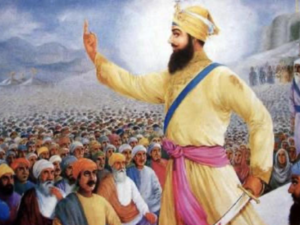In the 15th century, Bhai Mardana , a Muslim companion born in 1459, played a pivotal yet often overlooked role in the spiritual Odyssey alongside Guru Nanak Dev Ji. Their companionship, rooted in mutual respect and devotion, spanned spiritual endeavors across regions.
Mardana, though older than Guru Nanak by a decade, played a significant role as a musician. Gifted a Rubab by Guru Sahib, he skillfully performed kirtan, singing the verses of revered saints. This musical partnership is highlighted in 'Vaaran Bhai Gurdas,' emphasizing the unique bond between Guru Nanak and Mardana.
Despite societal norms attempting to confine masculinity to specific roles, Mardana's presence shattered such stereotypes. His simplicity and intellect emerged, reminding followers of Guru Nanak's humility and the philosophy they shared. Janam Sakhis, while rich in detail, often leave the spirituality and myth intertwined, portraying a nuanced blend of history and mythology.
Mardana's significance is evident in challenging situations, such as during Babur's invasion, where societal fear stifled expression. Yet, Mardana fearlessly accompanied Guru Nanak, openly singing about oppression. This courage not only defied societal norms but also contributed to the rebellious spirit of Punjab. Their journey was not just physical but a dialogue, a unique exchange of thoughts, as seen in the poetic responses shared between Guru Nanak and Mardana.
Mardana's musical accompaniment provided a bridge between their teachings and the people, fostering spirituality and softening the harsh realities of Punjab. This musical odyssey, documented in the annals of history, stands as a testament to the transformative power of dialogue, breaking barriers and fostering a deep understanding of 'Sabhanan da Sahib Ek Hai.' Mardana's legacy endures as a witness to a unique blend of spirituality, music, and social consciousness, offering profound insights into the shared journey of Guru Nanak and his devoted companion.





